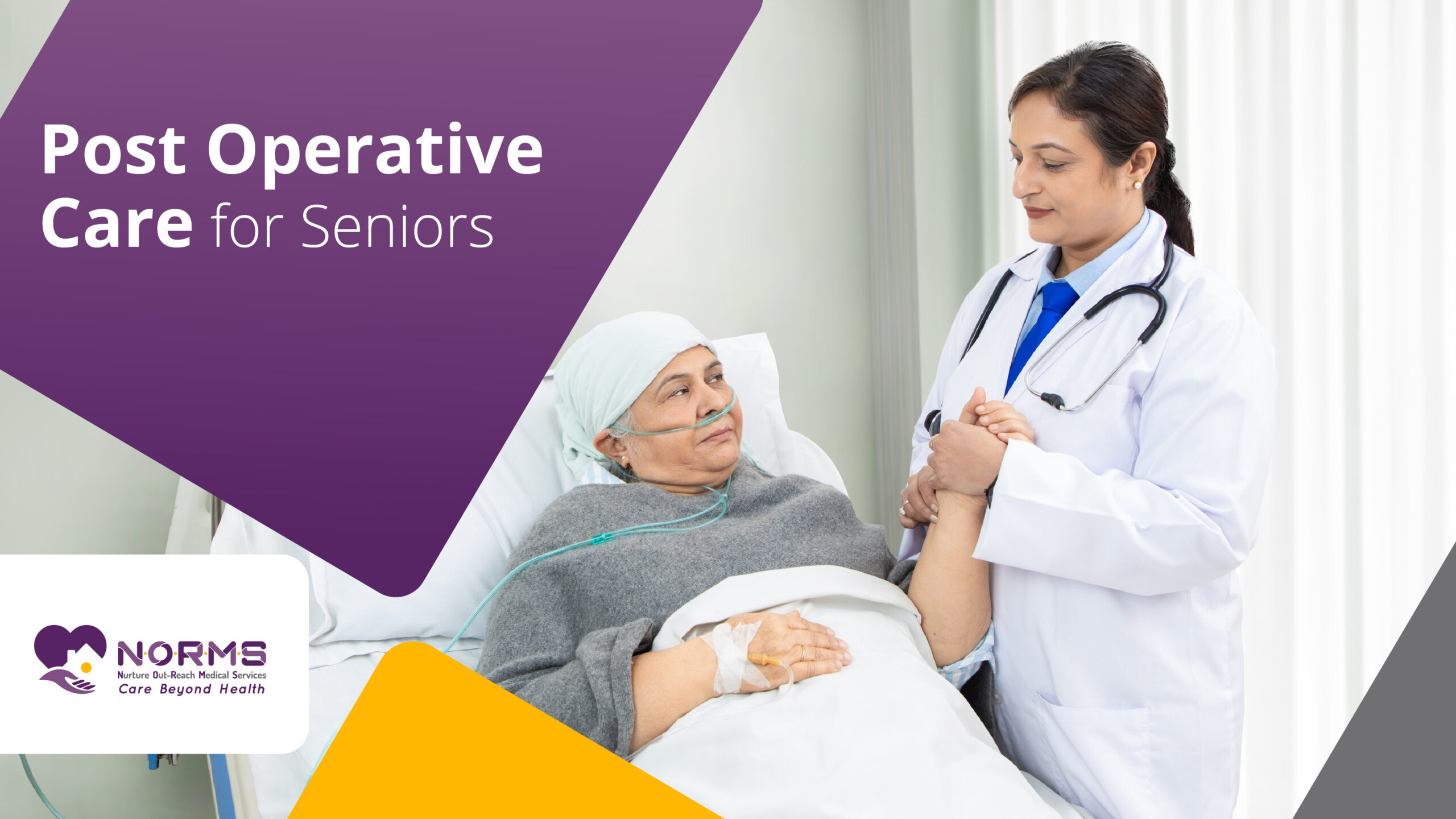
Post-operative care among seniors is an important aspect in ensuring uneventful healing and at the same time reducing post-surgery complications. However, with increasing age people start reacting differently to surgeries; therefore requiring more specific versatility in treatment. In this in-depth guide, various aspects of postoperative care amongst seniors will be explored including recovery and rehab.
TABLE OF CONTENTS
Initially, after the surgery monitoring vital signs is very important. Medical staff monitor blood pressure, heart rate respiratory rate, and body temperature closely to detect distress or complications.
Seniors can have increased pain perception, thus effective management of the pain is important. Personalized pain management plans that rely on medication, physical therapy, or alternative therapies are meant to relieve the discomfort where a consideration is made regarding an individual health status.
Proper wound dressing is significant to avoid infections. Post-infection care routinely includes inspection, cleaning, and replacing dressings. Signs of infection such as redness, swelling or oozing, etc call for prompt attention.
The early mobilization of seniors should be one’s priority since the complications can indeed result in aspects like blood clots and muscular atrophy. Together with patients, physical therapists prescribe rightful stages of exercises and movements.
Various problems are likely to develop among the seniors who have undergone surgery that cannot be well-balanced diet. Nutrition is an integral part of the recovery process, and healthcare providers strive to make sure that seniors get enough balanced meals that facilitate healing.
Correct hydration is a crucial aspect of well-being. The recovery process, specifically aimed at injured body parts, goes alongside it. For the senior population, one may require help with having an adequate fluid intake, especially in terms of mobility.
Seniors tend to take several medications at the same time under different health issues. Right after surgery, timely administration of drugs becomes vital in addressing pain management issues along with prevention of infection or even any other health complication.
By ensuring that seniors and their caregivers have sufficient information on the prescribed drugs such as side effects that may arise due to drug interaction, active participation in recovery is guaranteed.
There is a vast majority of people who offer tea and Earl Gray as the substitute. Post-surgery, seniors can feel very much depressed and anxious. The inclusion of counseling or support groups can play a critical role in the resolution of these issues.
When family members get involved in the recovery process, it cultivates a supportive environment. Family members could help with daily chores, offer company, and support emotional needs while also overseeing the elderly’s well-being.
Long-term treatment of rehabilitation primarily consists of performance therapy catered to the particular needs of patients that is senior people. These classes work to build strength and increase flexibility but also aim at fuller recovery.
Occupational therapy is vital for seniors who struggle to do something common duties. They are surrounded by skills they need of every therapist’s help such as dressing, cooking, and bathing.
Those who look at their past and ask themselves the question why such and other questions. Making the home environment to suit seniors is pertinent for a successful recovery. Such improvements could include the placement of grab bars, ramps or other modifications that improve safety and accessibility.
Depending on the type of surgery done, some seniors will have to use assistive aids in most cases a cane walker, or wheelchair. However, proper education on their use becomes crucial for smooth change.
To facilitate the monitoring of health changes and quick addressing of emerging issues, regular follow-ups with healthcare providers are scheduled to allow for regulating further steps.
Apart from dealing with post-operative cases in hand, preventive problems become the main focus. This may include vaccinations, screening, and lifestyle changes to ensure continuous healthcare.
Informing the caregivers of what is needed in catering for resident seniors during their recovery period is essential. This encompasses advice on medications, detection of symptoms of complications, and a support system for emotions.
Caregivers are tired and stressed. The use of respite allows them to take breaks although the care for a senior is ongoing. It can be done with the help of paid professional caregivers or from one’s friends and family members.
the provision of post-surgical care for senior citizens requires an intricate and personalized approach. Therefore, in the immediate post-operative time until long-term rehabilitation physical emotional, and environmental factors should be covered. Through the proper prioritization of factors like pain management, nutrition, and emotional support as well as caregiver education; health professionals play a huge role in ensuring that holistic recovery is achieved to alleviate suffering for senior citizens.
Vital. The tracking of vital signs, such as blood pressure and heart rate manually or temperature by using a thermometer is important in identifying any complications early enough.
Critical. A well-balanced diet promotes healing, and a lot of the healthcare workforce ensures that elderly people get enough nutrients.
Essential. Emotional support is also very important after the surgery and that’s because seniors might get anxiety or even depression due to such an operation.